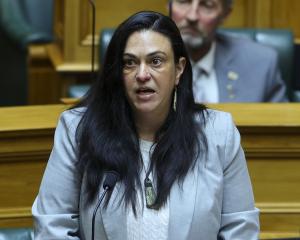He drones in a monotone and plays up to the desired image - responsible, measured, thoughtful.
What matters, of course, is not delivery but content.
For each of Mr English's seven Budgets he has played a smart game on both fronts.
Faced with the international financial crisis early in his tenure, he neither slashed and burned nor spent up large.
He and his government, with help from high dairy prices, rode out the storm, swallowed increasing debt and stayed on course.
In many ways yesterday's Budget was more of the same - mixing pragmatism and politics, steering through the economic, fiscal and social centre.
Prior to the Budget, he shrewdly hosed down expectations, especially around child poverty, and partially recovered from the embarrassment of failing to reach the promised land of surplus.
Hopefully, the financial projections are more accurate this time around and next year the Government books will break even, with healthy surpluses in the years beyond.
Hopefully, unemployment dips under 5%.
Hopefully, dairy prices recover, and New Zealand does not have to rely for precarious economic oomph on the housing booms of Auckland and Christchurch.
It seems surprising it has fallen to a National government to increase benefits above inflation for the first time since 1972, albeit up to $25 a week is only modest.
Mr English has, as well, tweaked Working for Families to give a little more at bottom end and a little less at top.
At the same time, pressure increases on beneficiaries to seek work.
Sizeable adjustments include the cutting of the $1000 KiwiSaver kickstart - a universal benefit the worst off are less likely to use - and imposing a tax on international departures and arrivals.
That will primarily affect those who have the wherewithal to travel rather than the most needy strugglers.
The Budget undeniably is no game changer.
Anyone looking for the Government to provide a jolt to the current direction needs to look elsewhere.
Instead, the Budget represents a philosophy that recognises a role for Government helping here and there but one which believes it is wasteful, ineffective and counter-productive for it to ''drive'' the economy.
Instead, it again reflects Mr English's cautious pragmatism.
The beneficiaries of the crusts from the economic table are most unlikely to vote for National, if they vote at all.
Nevertheless, across society many are sincerely concerned about the ''widening gap'' - a phrase even Mr English has now used - about inequality and in particular child poverty.
Mr English and Prime Minister John Key themselves had acknowledged the poverty issue, and Mr Key has been searching for ways to create a legacy in this area.
While extra money and additional programmes will hardly break beneficiary and underclass cycles, at least something is being done.
That is the message to many National and centrist voters with a social conscience.
The previous Budget saw free doctor visits extended to age 13 and paid-parental leave lengthened.
National, via forays into the centre, again is making it difficult for Labour to gain traction.
The cry of ''too little too late'' could be applied to poverty issues and also the housing crisis in Auckland.
National's partial capital gains tax, freeing up of Crown land and other measures, nonetheless, do show it can change its tune, allowing supporters to cry that it is responsive.
Given the drubbing National received in Northland - and given feelings in the South, too, that this area is ''missing out'' - Messrs Key and English will have to be much more responsive as well about gnawing and growing regional resentment.
They will also have to understand the alarm here about district health funding across Otago and Southland, including over the disgraceful state of the Dunedin Hospital building.
Mr English said he was proud of being a ''compassionate conservative''.
If the natural cynicism of political commentary is put to one side, perhaps he really is.
He certainly appears to be doing his solid, canny and careful best in most areas to balance restraint and state spending.












